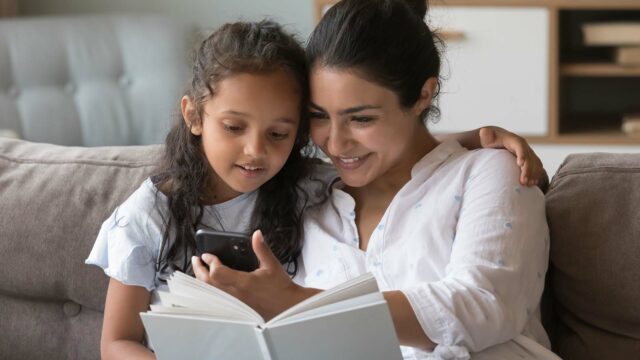
How to talk to children about scary news
On social media and the internet, children and young people see news of war, accidents, and disasters that can be perceived as frightening. Here's how to talk to your kids about the topic.
Choose language in the Google-box below. Some translations may be flawed or inaccurate.
Remember that children themselves get more than you think
News is not made for kids. The children themselves may get fractions of the whole but lack the experience and cognitive capacity to put the news into an understandable context. It can make them afraid of something there is no reason to be afraid of.
Find your own peace of mind
Remember that it is very frightening for children when adults are afraid. Before you enter the conversation, take a few deep breaths and find your own peace of mind. Yes, something terrible has happened, but the likelihood of something happening where you live is minimal. Let the children take part in this assurance.
Ask what the children have heard
Check out what the kids have already got themselves. Be proactive and don’t wait for them to come and ask. Find out what they’re wondering about and answer that.
Sense of security and assurance
Never lose sight of the goal: give children the assurance. Explain that there is a difference between being afraid and being startled and that this news made the adults startled because it happens so rarely and therefore they talk about it a lot. That doesn’t mean one has to be afraid. Explain that the adults are watching out and that they don’t have to be afraid that something will happen to you or someone you love.
Do not let it go with one call
Follow up over time. If your kids have questions that you cannot answer right away, tell them we will find out and talk more about it later. It is important to follow up. Getting back to the questions creates a framework that makes the child understand that it is okay to talk about this several times. It is important to catch up on misunderstandings or new things that children become afraid of.
Remember that you know your child best
Although you cannot always be sure what the children have got themselves and what are they afraid of, you know how to comfort and instill a sense of safety and security in them. Do not be afraid to go into this conversation.

The advice is given by Jon-Håkon Schultz, Professor of Educational Psychology at UiT Norwegian Arctic University (Ingebjørg Kårstad)
(Main image: Shutterstock / Serhii Mykhalchuk)
Read more:
How to reduce real-life violence on social media
How to reduce scary news features in your kids’ apps
Terrifying news and propaganda during wartime
A list of fact-checkers around the world
(A detailed version of this article is available in Norwegian here. Translated by Ratan Samadder)









